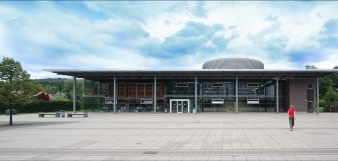Version [18241]
Dies ist eine alte Version von PmIntro erstellt von RonnyGertler am 2012-12-12 20:28:46.

Introduction
| File | Last modified | Size |
|---|---|---|
| PmIntro_ProgrammManagement.gif | 2023-10-06 18:37 | 5Kb |
| PmIntro_ProgressiveElaboration.gif | 2023-10-06 18:37 | 5Kb |
Inhalte von Prof. Dr. Kurt Englmeier
Overview
- Lecture and tutorials will be held in English
- Exams (written): German or English (Spanish on request)
- Literature: ISBN-13: 978-0-07-162673-6
Tutorial
- Software: OpenProj (http://www.serena.com/products/openproj/)
- Literature: ISBN-13: 978-1-59863-817-2
Content
- Introduction to Project Management
- Project Life Cycle
- Project Management Process
- Project Implementation
- Managing Project Scope
- Cost Management
- Quality Management
- Human Resource Management
- Communication Management
- Risk Management
- Project Procurement
Introduction
- Projects are endeavors.
- Projects are temporary.
- Projects Create Unique Products, Services, or Results
Projects Create Unique Products, Services, or Results
This one isn't tough to figure out. Projects have to create a thing, invent a service, or change an environment. The deliverable of the project—a successful project, that is—satisfies the scope that was created way, way back when the project got moving. Projects create the following:
- Things:Projects can create a thing such as a skyscraper, which is the end of the project. Or projects can create components that contribute to other projects or things, such as a project to install all of the glass windows in a skyscraper.
- Services: A project creating a service could establish a new call center, an order fulfillment process, or a faster way to complete inventory audits.
- Results: Projects can be research-driven. Consider a research-and-development project with a pharmaceutical company to find a cure for the common cold.
Projects are unique. This means that every project you ever do is different from all the other projects you've done in the past. Even if it's the same basic approach to get to the same end result, there are unique factors within each project, such as the time it takes, the stakeholders involved, the environment the project takes place in, and on and on the uniqueness goes. Basically, all projects are unique, even if your company does the same type of project repeatedly.
Progressive Elaboration
All projects begin as a concept. A project concept to create a new product or service typically includes a broad vision of what the end result of the project will be. The temporary project results in the unique product or service through progressive elaboration. Progressive elaboration is simply developing in steps and continuing by increments.
As a project moves closer to completion, the identified needs that launched the project are revisited and monitored. Complete understanding of the needs—and the ability to fulfill those needs—comes from progressive elaboration.

CategoryPmMa
Diese Seite wurde noch nicht kommentiert.





